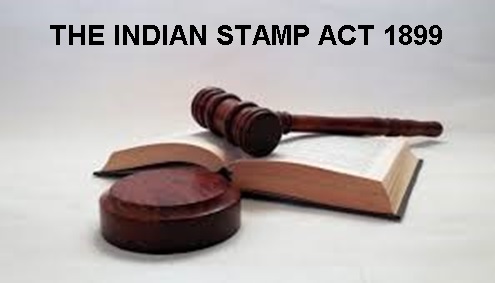We are writing on this subject in view of the increasing number of cases involving unscrupulous traders using well known trademarks unmindful of legal action by way of passing off / infringement suits and other actions under Section 102 read with Section 103 of the Trademarks Act, 1999 against falsifying and falsely applying trademarks. It is known to even a common man that only the proprietor of a trademark is entitled to use the same. Without authorisation by the proprietor, no other person is entitled to apply the trade mark in the course that person’s trade. Though registration of a trademark is non-mandatory, registration gives significant legal rights to the registered proprietor such as the right to sue for infringement and right to institute a suit against the infringer in the place of business of the registered proprietor.
Recently, a case came up before the Delhi High Court. It was suit against infringement of trademarks of the Plaintiff as well as of the copyright the Plaintiff had over the said artistic work. It was in the matter of Hermes International Private Limited & Anr. [the Plaintiff] v Macky Lifestyle Private Limited & Anr. [Defendant]. “Hermes” was a well-known, registered trademark in relation to goods such as bags, wallets, clutches and such leather goods. The Plaintiff had a copyright over the artistic work in the stylized representation of HERMES.
In its decision dated 24th Dec 2021, the Delhi High Court had granted an ad-interim injunction against the Defendants restraining them from using the trademark “HERMHS” and the Hermes word mark with a horse device. Hermes was a three-dimensional trademark. This injunction operates against not only against the Defendants but also against all their principal officers, servants, agents, affiliates, subsidiaries, distributors.
In cases involving infringement of trademarks, the moment plaintiff comes to know of any infringement, he must make enquiries about the persons involved in the infringement, the nature and various modes of infringement. The registered proprietor must carry out a comprehensive exercise to gather complete details and collect materials to establish his case.
Section 135 of the Trademarks Act, 1999 provides the nature of relief that could be granted to a registered proprietor aggrieved by any infringement of his registered trademark. Section 135 states that the registered proprietor can pray for grant of injunction and such injunction may even “ex parte”. It may include an order for discovery of documents; preservation of infringing goods, restraining the infringer from disposing of or dealing with his assets. The main relief would be injunction and a relief for damages or account of profits.
As explained by Madras High Court in its recent decision dated 15th December 2021, in CS 258 of 2020 in E-merge Tech Global Services Private limited v Vindhyasagar and Datasolve Analytics Private Limited that “an award of compensatory damages and an account of profits cannot go hand in hand, and in any case an account of profits an only be made in “exceptional” cases”. In simple words, when the Plaintiff knows that the Defendant had infringed the trademarks in a big way and he / she might have made a lot of profits through various modes of infringement and only when rendition of accounts is ordered, it will be known how much wrongful profits the defendant had made, the suit may ask for rendition of account of profits.
In Hermes case, the High Court noted that –
- the Defendant was having a wide spread manufacturing and distributing network where the impugned products were being sold across the Defendants own website and the Defendants were portraying themselves to be manufacturers. Though the website did not have any product listings, it allowed any prospective buyer / customer to place queries and quotes;
- the impugned products were also being sold on other third-party websites such as India MART, Facebook, Instagram, LinkedIn.
- The Defendants had listed several products amongst which a bag was listed under the category of Luxury Bag and it was identical to the “Birkin” Bag, in appearance and it was named as the “Premium Leather Bags” on IndiaMART on “https://www.indiamart.com/macky-leather-company/” and “https://www.indiamart.com/macky-leather-company/luxurybag/html”
The High Court took note that according to the Plaintiff, the Defendants are attempting to create an unauthorized association with the Plaintiff’s product and are targeting customers to deceive them into believing that Plaintiff’s have launched an affordable new range of “Birkin” Bags. There was striking identity between Plaintiff’s “Birkin” bags and Defendants’ infringing products.
Upon being prima facie satisfied that the Defendants were engaged in representing through various modes as if they have some connection with the Plaintiff. the High Court granted an ad-interim injunction as sought by the Plaintiff against the Defendants.
Since the infringement suit in Hermes case was filed under the Commercial Courts Act, 2015 [Act], as required under Section 12A of the said Act, it is mandatory to opt for a pre-institution mediation, unless the Plaintiff is able to show to the Court that the suit contemplates urgent interim protection as sought for in the suit. The High Court exempted the Plaintiff from attempting pre-institution mediation. The High Court directed the Defendant to file their written statement within 30 days of the receipt of the notice and the Defendant to file an affidavit of admitting or denying the documents of the Plaintiff. The Court further directed the Plaintiff to file its Rejoinder within 15 days of receipt of written statement together with an affidavit admitting or denying documents submitted by Defendants. If the Court holds that a party has unduly refused to admit a document without proper reason, the Court may impose exemplary cost.
This procedure is intended to improve the efficiency of justice delivery system. No doubt, in respect of matters involving the infringement of trademarks, such efficient administration of justice provides meaningful relief to aggrieved parties. Ultimately if Plaintiff fails in the suit, even the Defendant would not be suffering injunction, if any, for more than a reasonable period. It is a win-win for both sides.







